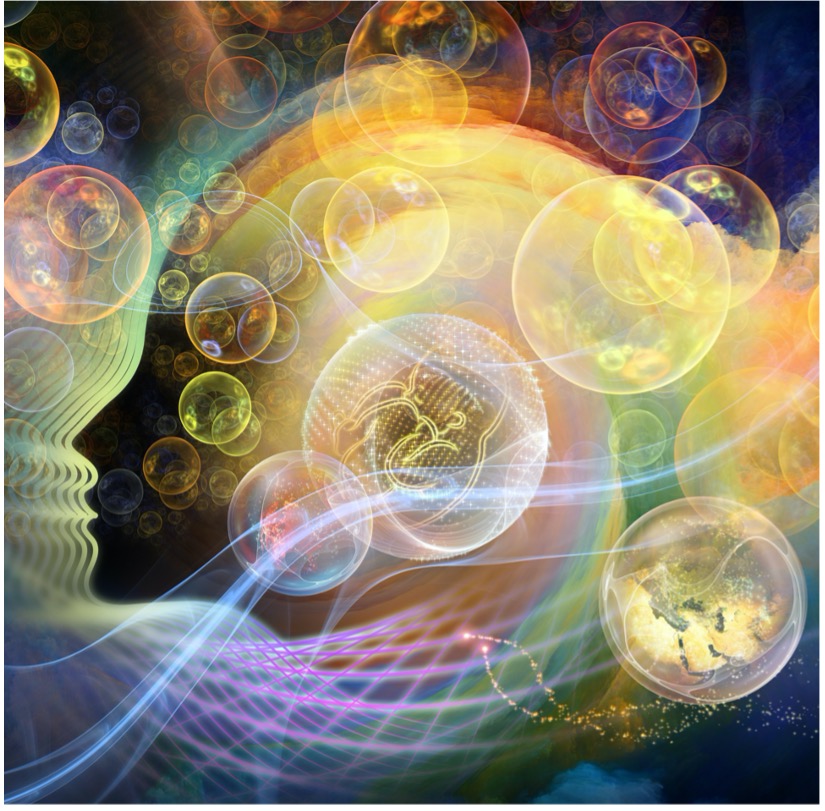Wisdoms from heaven
Lessons
- 1. Everything around you is born out of the Divine All-Source of Love (Click on the Lesson and then on the pictures)
- 2. There is no death, there is only evolution
- 3. The Divine Cycle for the human being
- 4. The Cosmic Laws of Father- and Motherhood guide the evolution of Human and Universe
- 5. The Divine Fatherhood and Motherhood in the ancient Vedas
- 6. The Motherhood of humanity is Cosmic Holy
- 7. The deeply moving "miracle" of pregnancy
- 8. Why does a child look like the father or the mother?
- 9. Through reincarnation in new lives the soul can develop
- 10.The Cosmic Laws of Reincarnation, Karma and of Cause and Effect
- 1-10 Video-Lessons 1-10
- 11. With whom, where and how do we reincarnate
- 12. Talent, character, emotional life, phobias and fears
- 13.Homosexual. Lesbian. Transgender. Hermaphrodite
- 14. Water is conscious life and can communicate with humans
- 15. The Creation of the Universe and the miracle of the expanding Universe
- 16. The Creation and the Evolution of man
- 17. Primordial humans once lived on Mars
- 18. Birth and evolution of animal and nature
- 19. Animal and nature in the Spheres of Light
- 20. Twin Souls in Cosmic perspective
- 21. Near Death Experience (NDE)
- 22. The disembody of Jozef Rulof
- 23. LOVE is the Divine Essence of Everything (Jozef Rulof)
- 24. From the All-Source of LOVE creation was born
- 25. Quotes from Jozef Rulof: LOVE is the Essence of everything
- 26. The Spirit Worlds After Death
- 27. The first three Spheres of Light still have earthly influences
- 28. The Meadow and the Fourth and the Fifth Sphere of Light
- 29. The Sixth and Seventh Sphere of Light
- 30. The Land of Twilight is the transition between dark and light spheres
- 31. The seven dark spheres
- 32. Spirits on Earth
- 33. Contact with spirits and ghosts
- 34. Our Soul goes through seven Cosmic Degrees to realize Divine Consciousness
- 35. In the higher Cosmic Degrees, the human soul is Divine power that conscious carries everything
- 36. The miraculous "concept of God" unveiled
- 37. Man is God, is All Source, All Soul, All-Spirit, All-Mother, All-Father, Life, Light
- 38. The earthly man is Body, Spirit, Soul, Feeling and Life
- 39. What is thinking and what is the function of the brain?
- 40. What happens when you sleep?
- 41. What happens when you are dreaming?
- 50. The books of Jozef Rulof------------(free download)---
- 51. Search by topic--------------------------(free download)---

38.7 The soul’s eternal evolution
Every soul in the many lives experienced follows a continuing path of evolution. But if we do something in one life that hinders another soul in its evolution, our soul will first have to correct this disharmony in a subsequent life. In Joseph Rulof’s books, this is called “”righting,“ ‘’cause and effect,”“ and ‘’karma.” In this way, we get to know ourselves better and better, becoming aware of the qualities of our soul that reveal themselves, such as the inner thrust to stay in harmony with other souls.
Thanks to the experiences in one life, we can go one step further in the next. We then no longer have to repeat what we have already learned and we can take on new challenges to grow further in love for everything around us.
Through spiritual growth in our life here on Earth, we start to attach less and less importance to Earthly matter. The spiritual then makes us feel happy and satisfied. When we as souls have completed our life cycle on Earth, we continue our evolution in the afterlife.
-The feeling which resides in you, which is you yourself, and which the soul acquired and is felt as feeling, touches this conscious- ness which manifests itself in your searching and yearning. If this is clear to you, Alonzo, you will feel that the soul must acquire all of these feelings, which requires many lives. It cannot be accomplished in one short earthly life.
Between Live and Death p.383 (BE.10495.10497)
-A different image: Someone has property on earth. He is happy, because he owns a lot. Prosperity on earth means happiness to many. But someone with spiritual feeling said to the rich man: ‘My spir- itual knowledge means more to me, my spiritual treasures have more value than all your possessions.’
And these forces, this I want to stress, have induced the person, due to all his material property, to renounce everything belonging to the earth. He possesses happiness in the spirit and he is poor in matter.
A View into the Hereafter p.174-175 (VI.11064.11077)
-You will feel, our reincarnation, our previous lives send us to dreams, send us to other countries. You stand before people and say: ‘Good heavens, why do I know those people so well? Why do I feel drawn to those people?’ Perhaps it is your child, your mother, your father.
Question and Answer 2 p.79 (VI.11064.11077)
-And I can certainly explain to you, madam, miss, lady, that if you come to Scotland or Ireland, or wherever, to Russia, and there and there and there, that you are suddenly standing before a human being whom you do not know, but for whom you feel. We are not strangers to each other.
Question and Answer 2 p.80 (Q2.2533.2534)
Source: Quotations from the books of Jozef Rulof